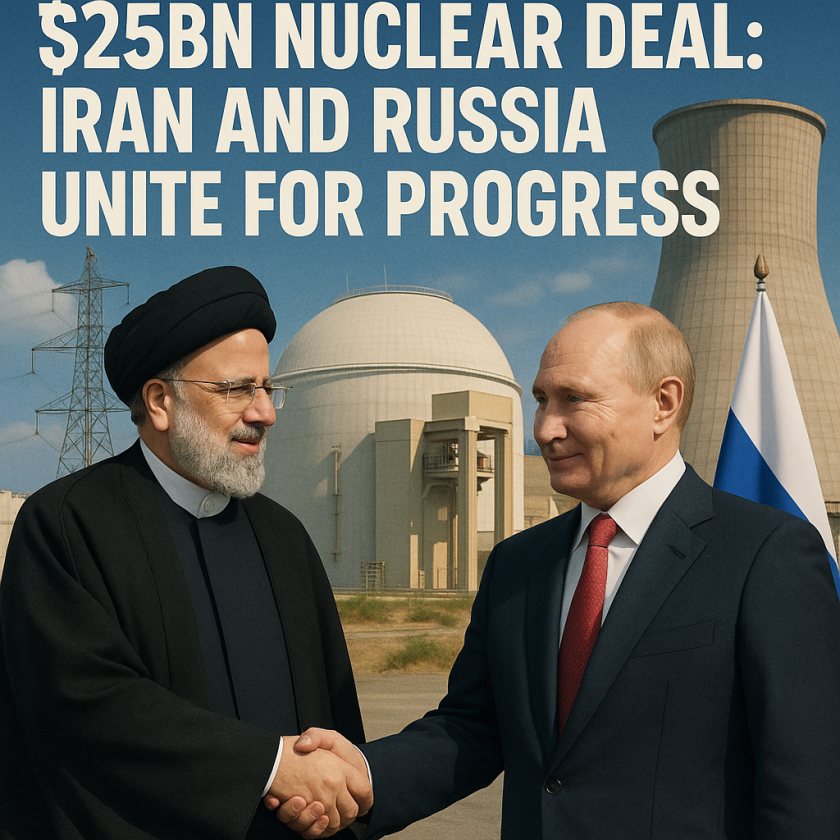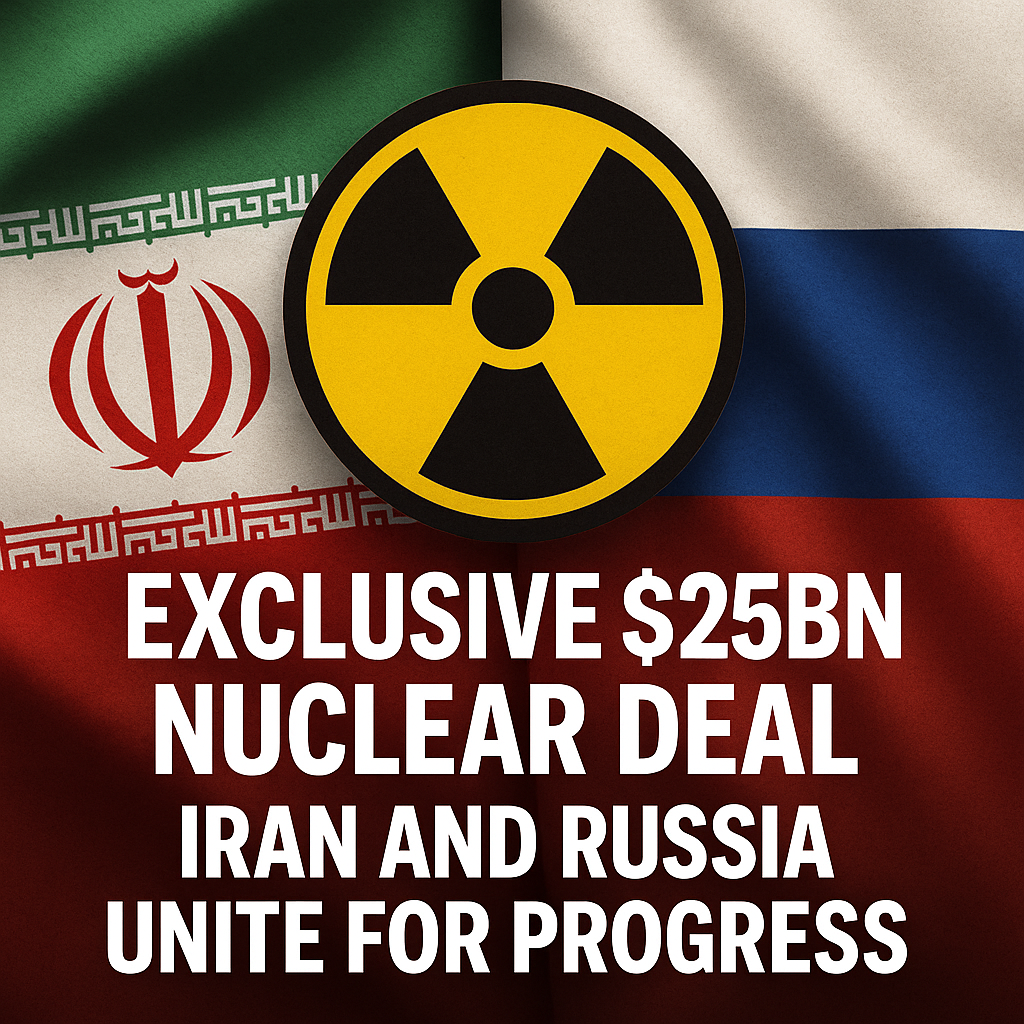Exclusive $25bn Nuclear Deal: Iran and Russia Unite for Progress
Exclusive $25bn Nuclear Deal: Iran and Russia Unite for Progress
The recent $25 billion nuclear deal between Iran and Russia marks a significant shift in international relations and energy cooperation. This agreement underscores both countries’ strategic interests and their capacity to influence the global nuclear landscape. As geopolitical tensions rise and energy demands intensify, this deal brings with it a host of implications—domestic, regional, and international.
The Nature of the Agreement

The essence of the deal is centered around the construction of multiple nuclear power plants in Iran, facilitating technology transfer and infrastructure development. Iran’s energy needs are pressing; as domestic demand surges, the regime seeks to bolster its power generation capabilities while pursuing a controversial nuclear program.
According to Al Jazeera, this partnership reflects not just economic interests but also a shared vision against Western sanctions presiding over both nations. Iran’s move towards nuclear energy is framed as a step towards energy self-sufficiency, especially in the face of opposition and sanctions from the United States and its allies. Meanwhile, Russia benefits not only financially but also politically, as it strengthens its alliances against Western hegemony.
Dual Perspectives: Benefits and Concerns
Economic Boost and Technological Advancements
Both nations stand to gain economically. For Iran, the influx of Russian investment can help revitalize its economy, enabling it to develop its nuclear energy infrastructure while reducing dependence on fossil fuels. Sky News reports that the nuclear deal can pave the way for other investments and cooperative ventures, positioning Iran as a major player in energy markets.
Furthermore, the technological transfer of nuclear energy processes can enhance Iran’s capabilities in energy production, fostering innovation and possibly opening doors for future partnerships, even beyond Russia.
However, this has raised alarms in several quarters. Critics argue that the agreement may endanger regional stability and exacerbate tensions in the Middle East. Iran’s nuclear ambitions have long drawn skepticism and opposition, particularly from Israel and Gulf states. The deal may cultivate further isolation from the West, igniting concerns over nuclear proliferation.
Geopolitical Risks and Reactions
While the economic implications are substantial, the geopolitical ramifications are just as significant. The alignment of Iran and Russia could create a more solidified counterweight against U.S. influence in the region. Russia’s involvement in Iran’s nuclear program could lead to enhanced military cooperation, leading to an arms race in an already volatile region.
Experts from RT News suggest that the nuclear deal reflects a deeper strategic partnership between the two countries. Many believe that this alliance is a response to U.S. sanctions and interventions, thereby implicating the deal in broader geopolitical struggles.
Conversely, proponents of the agreement highlight that it could ultimately foster regional stability through energy independence. They argue that with Iran becoming a more stable energy supplier, the region could see a decrease in conflict over energy resources.
An Uncertain Future
While both nations are optimistic about the prospects of their partnership, the path forward is fraught with uncertainties. Observers note that while the deal aims to bolster both countries economically and politically, it could also face pushback from the international community. Sanctions against Iran remain a significant obstacle, and any deviation from compliance with international nuclear agreements could lead to further isolation.
Moreover, as Iran increases its nuclear capabilities, the neighboring countries might feel compelled to enhance their own defensive measures, potentially igniting an arms race in the region. The implications of this deal could resonate far beyond the immediate benefits it promises, influencing energy, military, and diplomatic ties around the world.
In summary, the $25 billion nuclear deal between Iran and Russia symbolizes a merging of interests, seen by both as a path to enhanced energy security and geopolitical leverage. However, it also poses serious risks and overarching questions about regional stability and global nuclear proliferation. As this partnership unfolds, its true impact remains to be seen, highlighting the complexities involved in international relations where energy needs and geopolitical strategies entwine.




































